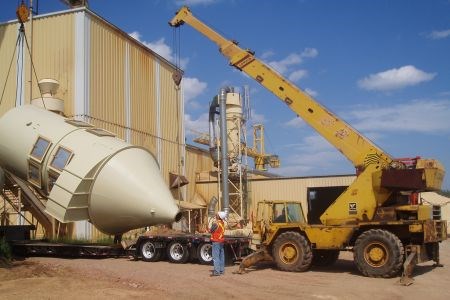A Thunder Bay entrepreneur expects to have contracts in hand by early spring to start exporting wood pellets to major European customers.
Ed Fukushima, president of Atikokan Renewable Fuels, is focused on firming up an order book to go “flat out” at production startup for his northwestern Ontario mill.
A confident Fukushima was expecting good news to get his stagnate Atikokan operation cranked up to 140,000 tonnes annually as early as this summer.
“The next 30 to 60 days we should have contracts in hand,” he said in a January interview.
Without naming customers or countries, Fukushima said he was negotiating with large European companies and state-owned utilities.
It's been a waiting game for the fledgling company since Fukushima and business partner Larry Levchak purchased the shuttered Fibratech particleboard plant in Atikokan in 2009.
Two years ago, he applied to supply feed stock to Ontario Power Generation's (OPG) nearby Atikokan Generating Station, which will be undergoing a conversion from burning coal to wood pellets. Fukushima's mill is only 14 kilometres away.
But it's turned out to be a waiting game.
With no official word from OPG on a procurement contract, Fukushima started trolling for customers, even looking internationally.
He credited the Ministry of Northern Development and Mines (MNDM) for making contacts and arranging meetings, which included a tour of Atikokan by some European companies last fall.
“MNDM have helped us sort out who the real players are.”
His transportation plan is to send rail carloads to Montreal for marine delivery overseas. Fukushima considered shipping through Thunder Bay but couldn't make the economics work.
“We can't get the costs down to ship through the Great Lakes. Nobody has come up with a number to satisfy what we need.”
Fukushima, who runs three Thunder Bay companies, estimates the Atikokan operation will employ between 40 and 50, and create 100 logging contractor jobs.
The investment in machinery will be $15 million, but he's holding off on ordering the pellet press dies from the U.S. until the orders and customer pellet specifications are finalized.
“We can't finish the actual die design until we figure out who we're making the product for. “We're not looking to sell 10,000 tonnes a year and bag them manually. Until we get the plant loaded, we're not firing it up.
“We're going after specific markets and when we land them, we'll go forward. We're being cautious and not wasting any money.”
Last year, the company received 179,400 cubic metres of poplar and birch fibre through the Crown wood supply competition.
That was tacked on to the 100,000 cubic metres inherited with the former Fibratech mill.
If a procurement deal with OPG comes through, Fukushima said the plant is definitely scaleable and he could privately source fibre to double production.
The Atikokan Generating Station would need 90,000 tonnes annually.
“We don't know if we're in the running, (or) if we're going to be awarded. We can't depend on that, we've just got to go forward with the business plan and find customers wherever they might be.”
OPG's Chris Fralick, plant manager for its Northwest Thermal Operations, couldn't get into specifics about suppliers due to confidentiality agreements.
“We have initiated discussions with potential suppliers. I really can't say more than that other than to say no contracts have been awarded and no bidders have been eliminated.”
Negotiations on a long overdue power purchase agreement between OPG and the Ontario Power Authority are ongoing, but he was hopeful of announcing something soon. There are also environmental approvals needed for the conversion, and for prices to be firmed up on biomass fuel and construction costs before it's greenlighted by the OPG board.
Engineering work continues at the power plant and some site preparation has started to make way for new storage silos and a material handling facility.
On-site construction is expected to start this summer with a plan to have the plant operating on biomass by late 2013.
Fukushima has bigger plans for multiple pellets mills across the North.
Through a spinoff company, Great North Bio Energy, they are partnering with the Whitesand First Nation, near Armstrong, and the Sand Point First Nation, on Lake Nipigon, on two more mills.
The sites have been selected and both are in the engineering and environmental assessment stage. The province delivered a Crown wood allocation for those projects, which are expected to be operational by 2013.




